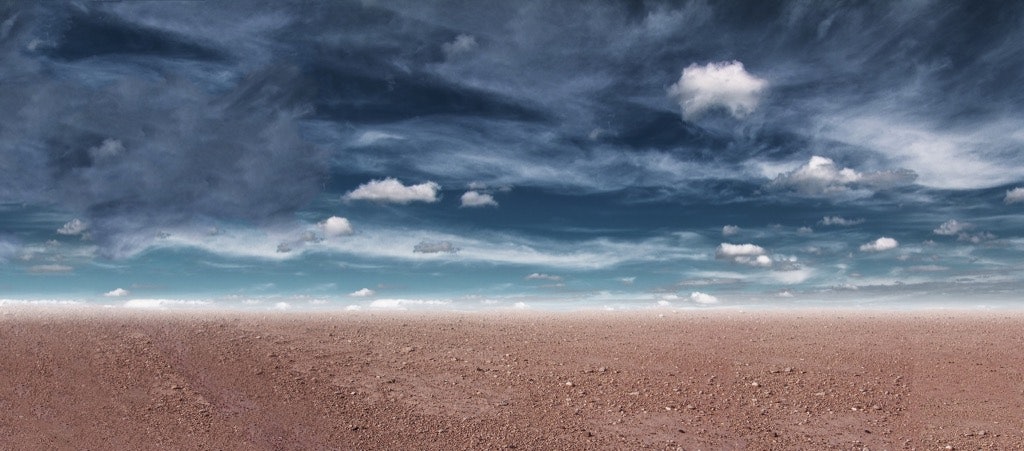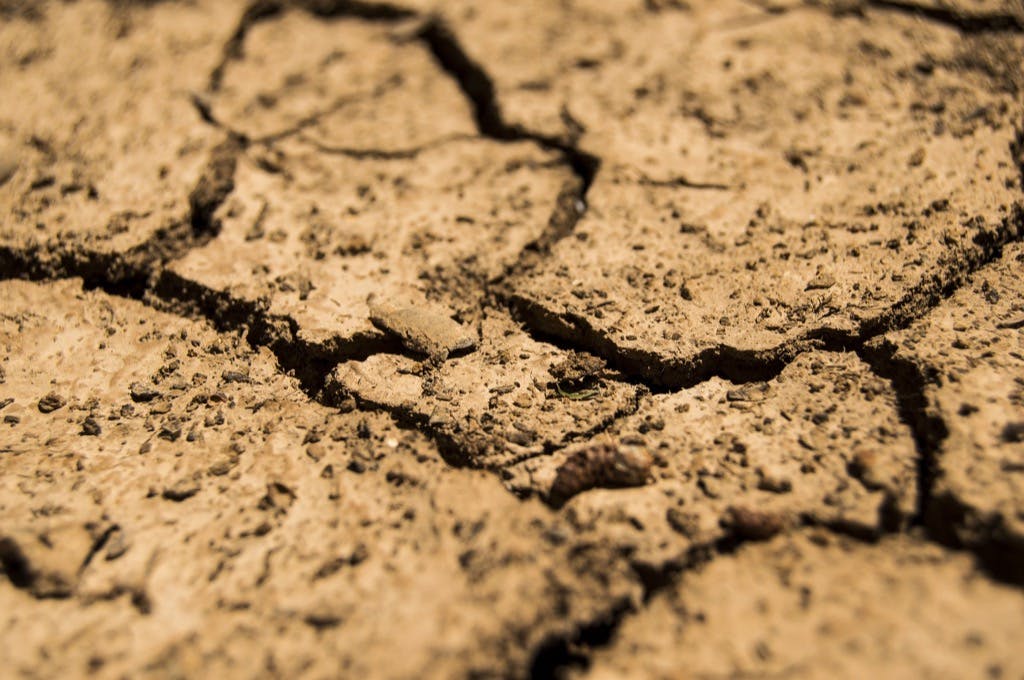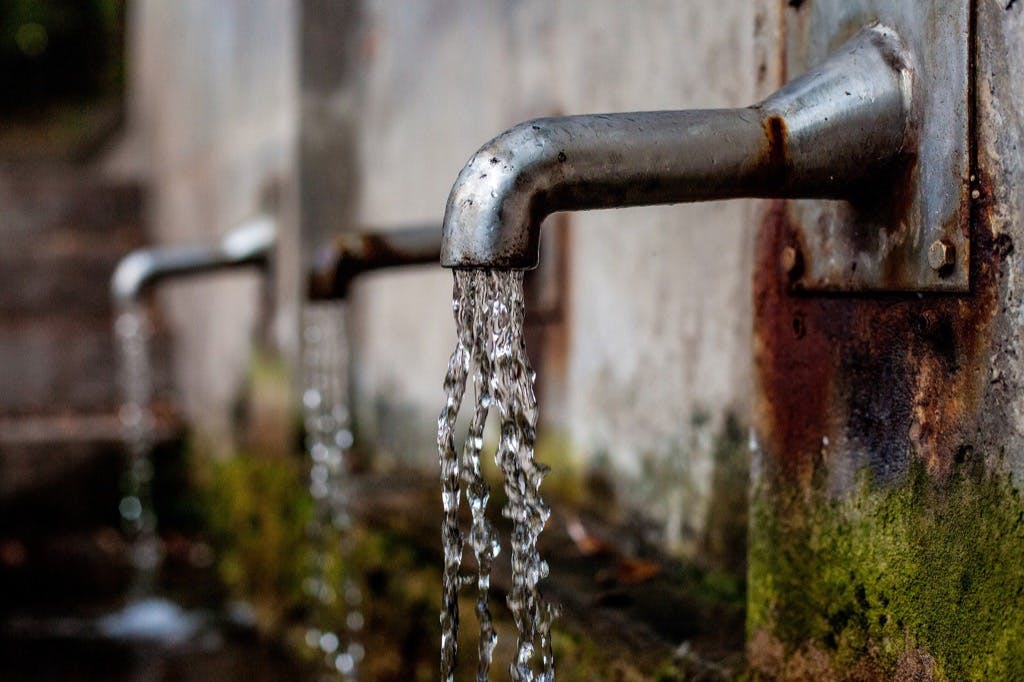Causes and Effects of Water Scarcity and Droughts

Since water covers a vast majority of the Earth, it could be hard to imagine how it could ever be in short supply. However, only 3% of the world’s water is fresh, and the vast majority of it is inaccessible for human use. As a result, water scarcity is a pressing and important issue for much of the global population. The United Nations sees water scarcity as “scarcity in availability due to the physical shortage, or scarcity in access due to the failure of institutions to ensure a regular supply or due to a lack of adequate infrastructure.”
Around 1.1 billion people have no access to water. Inadequate sanitation is an even bigger issue. Millions of people die each year from water-borne sicknesses like cholera, typhoid fever, and diarrheal diseases. The problem is at its most acute across swaths of Africa, the Middle East, and large parts of Asia. The United Nations has estimated by 2030, half of the global population will be in areas of high water stress.

Why Is Water Scarcity Such a Big Issue?
There is a growing body of research that reaffirms the importance of water in regards to geopolitical stability. Human health and agricultural concerns are also of great importance. Leaders use access to water as a political tool or as a way to consolidate political power. Carl Bruch, the director of international programs at the Environmental Law Institute told Scientific American how instances of drought are often associated with migration and regime change.
The changing global climate has also taken a toll on hydrological systems across the globe. It has hurt the livelihoods of millions of farmers and affecting the foods they produce.

What Are Some of the Causes of Water Scarcity?
One of the largest causes of water scarcity across the world is pollution. Pollution can come in many forms, and almost always makes the water unfit for human consumption. A chemical or oil spill can permanently taint the water. Any industrial waste or fecal matter that is dumped into rivers or oceans without proper treatment pollutes the water. Pesticides and other fertilizer use by farmers can also lead to water pollution if the chemicals seep into the groundwater or in underground aquifers.
The misuse of water resources is another massive issue that leads to water scarcity. Inadequate management of resources or over zealous water usage often leads to problems in the future once the water begins to run out. Much of the Middle East has turned to desert due to the overuse of water, which has taken a particular toll on nations like Iran. According to the Guardian, the United Arab Emirates has further invested in desalination and water treatment plants in order to keep up with the demand for fresh water. With an ever-growing global population, the strain on the world’s water resources only keeps looming larger each day.
What Happens When it is a Long Lasting Drought?
Long-lasting droughts also contribute to water scarcity. With little or no rain on the horizon, rivers, streams, and lakes quickly dry up. This leaves nothing for people to use. Droughts directly inhibit economic growth and drive up instances of poverty in the areas where they strike. Since droughts are often unpredictable, the effective and efficient management of water resources is paramount in order to weather through any problems. However, building resilience to a lack of water is a massive undertaking, and is sometimes very difficult to do in areas that are very arid in nature.
The actions (or inaction) by governments around the world can also perpetuate water scarcity. Some nations use water as a political tool for control, restricting and allowing access as a manner to wield power and influence. On the other hand, Human Rights Watch wrote about instances in western Thailand and in Bangladesh where authorities did not take proper action to mitigate water contamination, contributing to water scarcity.

What Are Some of the Effects of Water Scarcity?
Aside from an obvious lack of drinking water, hunger is one of the biggest effects of water scarcity. Water shortages directly contribute to lower crop yields and the death of livestock, which can quickly lead to food shortages. Starvation can result in the flare up of conflict, and incite migration efforts, which can be both dangerous and hard to properly manage. The United Nations says food production should be increased by 60% by 2050 in order to stave off political turmoil, civil war, terrorism, and other problems. Children who are hungry or thirsty often do not go to school, which means education suffers as well.
A lack of water takes a massive toll on global energy output. Many energy sources rely on large amounts of freshwater resources in order to properly function. For example, thermoelectric power plants used up 38% of United States freshwater withdrawals in 2010. With the global energy demand only increasing, the need for water keeps rising. Unless there is a greater shift towards alternative energy resources, water will still be in great demand.
Water scarcity slows the overall economic output. When access to clean water is not guaranteed, it is very difficult to have a prosperous and dynamic economy. The prevalence of water-borne diseases can severely affect the general health and worker productivity. A lack of water makes proper bathing and the cleaning of household items very difficult. Unhygienic circumstances foster poor living and working environments, dragging down economic productivity.
It Involves Business
Many businesses wish to have easy and convenient access to water resources. But they might not choose to go into certain areas if there is a dearth of water. They see water as a competitive advantage when it comes to their operations.
If businesses and industry do not penetrate certain areas or leave, unemployment rates can rise. This drastically impacts the local community and devastates populations. A lack of jobs and opportunities can drive down income, tax revenues, and the free flow of commerce.
